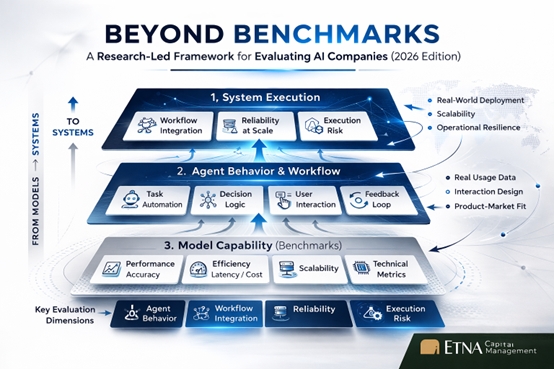
How Does AI Contribute to Data-Driven Decision-Making in Startups?
In the fast-paced world of startups, leveraging AI for data-driven decisions is crucial. We’ve gathered insights from CEOs and a CTO, among others, to share their experiences. From how AI enhances customer understanding to driving informed startup decision-making, discover the diverse ways AI is shaping the future of startups through these eleven expert perspectives.
- Enhances Customer Understanding
- Enables Cost-Effective Competitiveness
- Accelerates Marketing and Customer Insights
- Provides Anticipatory Insights for Business
- Assesses Data for Healthcare Privacy
- Uncovers New Market Opportunities
- Optimizes Real-Time Marketing Strategies
- Transforms Data Into Actionable Strategies
- Improves User Experience and Success
- Facilitates Real-Time Operational Adjustments
- Drives Informed Startup Decision-Making
Enhances Customer Understanding
AI is an incredible tool to help startups make better business decisions. It also levels the playing field between startups and larger companies with bigger teams and bigger software budgets.
Our product uses AI to design, create, and edit presentations. Here at Plus, one of our other favorite ways to use AI is to better understand our customers. Who are our best customers, what features do they use, and how do they get value out of our product?
While there are many different ways we look at quantitative product and revenue metrics, qualitative data has historically been much more difficult to interpret at scale. Using AI, however, we have been able to ask better questions and gain a more nuanced understanding of the qualitative side of customer behavior.
For example, we use AI to anonymously analyze all of the prompts that are entered into our system and classify the goal of the presentation, the subject of the presentation, and other aspects of the output. This approach would typically require a manual review of each input and output.
Afterwards, we take the outputs of this AI processing and do another level of AI analysis to classify the types of customers that are entering each prompt. From here, we can map out our key customer personas, their industries, company types, goals, and more.
We can then pass these qualitative attributes back into our regular analytics systems in order to answer questions like, “What goals are the customers who grow the most in their first three months typically trying to achieve?”
Using AI, we can ask (and answer!) these types of questions with a very small team and spend our time improving our product rather than trying to understand our data.
Daniel Li, CEO, Plus Docs
Enables Cost-Effective Competitiveness
AI helps us compete with larger organizations in a cost-effective manner. Although AI is still an emerging market, it has become increasingly accessible to startups and small- to medium-sized businesses like ours. Nowadays, there are many AI software products and services readily available to entrepreneurs who do not have the resources to invest heavily in AI.
From my own experience, as a budding entrepreneur, you need to keep track of countless aspects, from monitoring the online activities of competitors to accessing their public financial reports. However, manually analyzing each data point can be incredibly time-consuming and labor-intensive.
Smart AI automation and analysis tools provide efficient, cost-effective solutions that quickly gather and analyze data, offering timely insights that can propel a startup forward. For instance, we use AI to automate mundane tasks like audit reporting or image recognition, employing human-in-the-loop machine learning models. This allows us to make swift decisions based on these insights, helping us remain competitive in a challenging market.
Lucas Ochoa, Founder and CEO, Automat
Accelerates Marketing and Customer Insights
At our startup, AI is a game-changer for making smart decisions quickly. We use AI to sift through big data and get insights that help us target our marketing better and understand our customers more deeply. It’s made us faster and more accurate in responding to trends and needs.
Corey Schwitz, CEO and Founder, Skydog Ops
Provides Anticipatory Insights for Business
I can share insights on how AI has been integral to our data-driven decision-making at Profit Leap, where we’ve been developing and leveraging AI tools like HUXLEY, the AI business advisor chatbot. Our focus has always been on harnessing AI to enable small businesses to make smarter, faster decisions.
For instance, one of our early challenges was ensuring our clients could understand and act on complex market insights without needing a data science degree. By integrating AI analytics, we could distill vast amounts of market data into actionable advice. HUXLEY, for example, analyzes patterns in data to provide tailored advice for small businesses, guiding them on when to scale operations or pivot strategies. This approach led to an AI-driven decision-making process that significantly reduced time and resource expenditure for our clients while enhancing their strategic agility.
Moreover, we’ve seen how AI can preemptively identify opportunities or threats in the market. By leveraging predictive analytics, we were able to advise a client to adjust their inventory before a major market shift, based on data trends our AI tools identified. This not only saved the client from a potential financial pitfall but also positioned them to capitalize on the market change, leading to a 70% spike in their quarterly sales.
Through these experiences, it’s clear that AI’s contribution to data-driven decision-making goes beyond mere analysis; it’s about providing a competitive edge through anticipatory insights and personalized strategy development. This has not only transformed how decisions are made within our startup but also the level of success our clients achieve in their respective industries.
Victor Santoro, Founder and CEO, Profit Leap
Assesses Data for Healthcare Privacy
When you are in the medical industry, protecting people’s data is of the highest importance; therefore, we use AI to evaluate information sets in order to make data-driven decisions on how to embed privacy measures into our marketing and other efforts. In the healthcare industry, all it takes is one misuse of personal data or a misstep in your security, and your business can take a nosedive.
This is why we implemented AI to assess sensitive data points and see where there may be vulnerabilities, allowing us to make more informed decisions on which kind of information we use, as well as the manner in which we use it. By using AI to evaluate information, we were able to make data-driven decisions in our efforts to protect potential and current customers’ privacy.
Robert Applebaum, Founder, ApplebaumMD.com
Uncovers New Market Opportunities
AI helps bridge gaps and form connections that would otherwise be opaque, using industry-standard statistical data analysis. With these insights, it allows us to target new markets, verticals, and niches that would have initially been overlooked.
Joseph Leung, CTO
Optimizes Real-Time Marketing Strategies
At Thinksia, AI has been instrumental in reshaping how we approach data-driven decision-making, especially in the realm of marketing strategy and campaign optimization. One striking example of AI’s impact comes from implementing real-time analytics for our clients. AI tools have enabled us to analyze customer interactions and engagement across various platforms instantaneously, providing insights that are critical for rapid strategy adjustments.
Utilizing AI for precision monitoring has allowed us to identify patterns and trends that were not immediately visible. For instance, by analyzing customer data, we found that certain messaging aligned better with specific customer segments, leading to tailored campaigns that achieved a 45% higher engagement rate compared to our traditional approaches. This level of granularity in understanding customer preferences and behaviors significantly contributed to our success in acquiring and retaining clients.
Moreover, AI’s role in our fractional CMO services has been transformative. It has empowered us with competitive marketing and positioning intelligence, streamlining our operational orchestration. By feeding AI systems with vast amounts of market data, we were able to derive actionable insights quickly, helping our clients navigate the market more effectively and outmaneuver their competition. This strategic advantage facilitated by AI not only fostered growth but also established robust brand recognition for our clients in their respective industries. AI has thus been a cornerstone in our approach to driving business growth and scalability through informed and precise marketing strategies.
Timothy J Williams, Principal Consultant, Thinksia
Transforms Data Into Actionable Strategies
AI is at the heart of our strategy, enabling us to make smart decisions quickly. We use machine learning to sift through loads of customer information, helping us understand what our customers like and need. This knowledge allows us to adjust our offerings on the fly, perfectly aligning with what our audience seeks.
On a personal note, I’ve watched AI predict the way customers will act, enhance their experiences with us, and lead our company toward steady growth. Essentially, it turns piles of data into a clear plan of action, bringing an innovative and customized touch to how we connect with every customer.
Valentin Radu, CEO, Founder, Blogger, Speaker, and Podcaster, Omniconvert
Improves User Experience and Success
AI plays a pivotal role in our data-driven decision-making processes. Through our AI-powered support assistant, we gather insights from customer interactions, ticket resolutions, and usage patterns, providing invaluable data for decision-making. By analyzing this data, we can identify trends, anticipate customer needs, and optimize our platform for better user experiences. Additionally, AI assists in automating repetitive tasks, freeing up time for our team to focus on strategic initiatives and innovation. Overall, AI enables us to make informed decisions swiftly, enhancing both our operational efficiency and customer satisfaction.
At Outverse, we understand the importance of keeping our support documentation current and relevant. We employ a combination of AI-powered content management systems and human oversight to achieve this goal. Our AI algorithms continuously analyze user feedback, search queries, and platform updates to identify areas where documentation needs to be updated or expanded. Additionally, our dedicated team of content specialists regularly reviews and revises the documentation to ensure accuracy and clarity. By leveraging both AI and human expertise, we maintain a dynamic knowledge base that empowers our users with the most up-to-date information, ultimately enhancing their experience with our platform.
Outverse forums are specifically designed to foster customer success and support interactions. Unlike traditional online community platforms, our forums are integrated seamlessly with our AI-powered support assistant, enabling users to find solutions quickly and efficiently. Our forums prioritize relevant content through AI-driven recommendations and search optimization techniques, ensuring that users can easily discover valuable insights and solutions.
Furthermore, our forums are actively monitored by our support team, providing timely assistance and ensuring a positive user experience. Overall, Outverse forums combine the power of AI technology with a customer-centric approach to deliver a superior support community tailored to the needs of modern SaaS businesses.
Lily Bradic, Marketing Lead, Outverse
Facilitates Real-Time Operational Adjustments
We leverage AI for real-time analytics, which enables us to make quick adjustments to our operational strategies. For instance, AI algorithms analyze live data streams from our e-commerce platform to detect sudden changes in customer purchase patterns.
This rapid analysis helps us to quickly capitalize on emerging trends or address potential issues before they impact the business. This dynamic decision-making process has not only increased our responsiveness but also boosted our overall market adaptability.
Ryan Doser, Co-Founder, AI Insider Tips
Drives Informed Startup Decision-Making
Startups often operate in fast-paced and uncertain environments where making informed decisions quickly can be the difference between success and failure.
Data Analysis: AI algorithms can process vast amounts of data much more quickly than humans can. This capability allows startups to analyze customer behavior, market trends, and operational efficiency in real-time, leading to more informed decision-making.
Predictive Analytics: AI can use historical data to predict future trends, helping startups anticipate market shifts, customer needs, and potential challenges. These insights can guide strategic planning and proactive decision-making.
Personalization: AI can help startups personalize their products or services for individual customers by analyzing user data and preferences. This personalization can lead to higher customer satisfaction and retention rates.
Automation: AI can automate routine data-processing tasks, freeing up human employees to focus on more strategic activities that require human insight. Automation can also reduce the likelihood of human error in data handling.
Resource Optimization: Startups often operate with limited resources. AI can help optimize the use of these resources, whether it’s through more efficient marketing spend, supply chain optimization, or staffing.
Enhanced Customer Insights: By using AI to analyze customer feedback across multiple channels, startups can gain a deeper understanding of customer pain points and preferences, which can inform product development and customer service strategies.
Tejas Mehta, Senior AI Engineer, Boston Consulting Group
Related Articles









